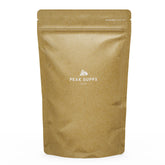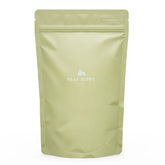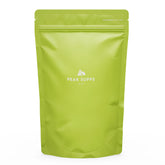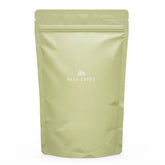Yoga VS Pilates, Which Ones For You?
For most people, knowing the difference between Yoga & Pilates is often a mystery. In this blog, we'll break down and discuss the difference between the two.
Even though we don't have to pick sides, it's good to get an understanding of both to see which one fits with your goals more!
The origins of Yoga
The origins of yoga trace back to thousands of years ago in India. Yoga has roots in Buddhism, Shamanism, and other religions. Yoga is mainly focused on the belief in connecting your mind, body, and spirit through breathing exercises.

Pilates originated in 1920 by Joseph Pilates, whose aim was to use Pilates as a form of healing and rehabilitation for WW1 soldiers. Pilates focuses on strength, particularly core strength, and stability.

The difference
Though different, both Yoga and Pilates get tied together as they are both typically known as low-intensity, holistic styles of exercise. Both exercises focus on strength and flexibility.
Yoga is based heavily on connecting with spiritual consciousness through your mind and breathing. Meditation is often tied into yoga practice and in most cases, yoga exercise is known as a relaxing and spiritual type of exercise. Yoga is typically considered for creative minds.
Although Pilates also focuses on breathwork, it mostly focuses on strength and stability. With its origins coming from healing and rehabilitation, Pilates focuses on trying to relax tense muscles. Pilates breathwork manages oxygen through the body to relax stressed muscles. Pilates may be considered to be suited for the more logical than the creative mind.
Physical Benefits of Yoga
Strengthens flexibility and balance
Yoga focuses on strengthening flexibility and balance, with most yoga sessions requiring you to hold deep, difficult poses (1) (2). In a 2019 study, yoga was found to improve muscle strength and flexibility within 12 weeks (3)
Can be a stress relief & improve mental health
Yoga focuses on connecting the mind, body, and spirit, giving people an opportunity to disconnect from busy lifestyles which have been found to deduct stress (4). Research also suggests that some types of yoga have been found to help with anxiety & depression (5).
Improved quality of health
Along with focusing on mindfulness, yoga has been shown to improve physical health. A 2017 study found that practicing yoga every day for a month reduced participants' blood pressure, a key indicator of heart health (6).
Benefits of Pilates
Helps develop core strength, flexibility & balance
Pilates focuses on precise movements to help align and relax muscles, increasing your overall strength and flexibility. A study conducted in 2014 showed that women partaking in a 12-week Pilates course were found to have improvements in their strength and flexibility (7).
Can help with stress, anxiety, and depression
Like yoga, Pilates focuses on a mind-to-body connection. Pilates and breathwork have been found to help with depression and anxiety, as it allows people to disconnect and forget about busy lifestyles, focusing on the present moment (8).
Improves posture & risk of injury
Pilates focuses on good alignment and strengthening in your core, which helps with posture. It is also common for people to do Pilates to try and help aid with back pain (9).

So, which is better?
The answer to this depends on what your goals are. If you're looking for a more fast-paced, overall strengthening exercise, then Pilates could be for you. If you're looking to connect more with your body and mind and increase your flexibility, then yoga could be for you. Try both out, then decide which one suits your abilities better!
Make sure to share this blog with your friends or anyone who this blog may be helpful to!
Caution: Please consult with your doctor before you take yoga and Pilates class. Some of the poses may be dangerous for you if you have had surgery or suffer from any illness.
Sources & blogs:
| Resources | |
| 1.
The effects of selected asanas in Iyengar yoga on flexibility: pilot study |
https://pubmed.ncbi.nlm.nih.gov/25042310/ |
|
2. A Systematic Review of Yoga for Balance in a Healthy Population |
https://www.ncbi.nlm.nih.gov/pmc/articles/PMC3995122/ |
| 3. Effects of a 12-Week Hatha Yoga Intervention on Cardiorespiratory Endurance, Muscular Strength and Endurance, and Flexibility in Hong Kong Chinese Adults: A Controlled Clinical Trial | https://www.hindawi.com/journals/ecam/2015/958727/ |
| 4.
A systematic review of randomised control trials on the effects of yoga on stress measures and mood |
https://www.sciencedirect.com/science/article/abs/pii/S002239561500206X?casa_token=NMVuK67oIBwAAAAA:xF1kp3K-U3o4miVQlFcUGoaFEVIdyfkT3-PFN5uQ_wi8G-AILpZkPz2MNv_NrIFlG3WuKwT6-A |
| 5.
Study Finds Even More Proof That Yoga Can Help Decrease Anxiety |
https://www.mindbodygreen.com/articles/pilates-vs-yoga-benefits |
| 6. Yoga practice improves the body mass index and blood pressure: A randomized controlled trial | https://www.ijoy.org.in/article.asp?issn=0973-6131;year=2017;volume=10;issue=2;spage=103;epage=106;aulast=Chauhan |
| 7. Effects of a 12-Week Pilates Course on Lower Limb Muscle Strength and Trunk Flexibility in Women Living in the Community | https://www.tandfonline.com/doi/abs/10.1080/07399332.2014.900062 |
| 8.
Pilates and aerobic training improve levels of depression, anxiety and quality of life in overweight and obese individuals |
https://pubmed.ncbi.nlm.nih.gov/29236887/ |
| 9.
Back pain pilates video workout |
https://www.nhs.uk/conditions/nhs-fitness-studio/chronic-back-pain-pilates-exercise-video/ |

















Leave a comment
Please note, comments need to be approved before they are published.